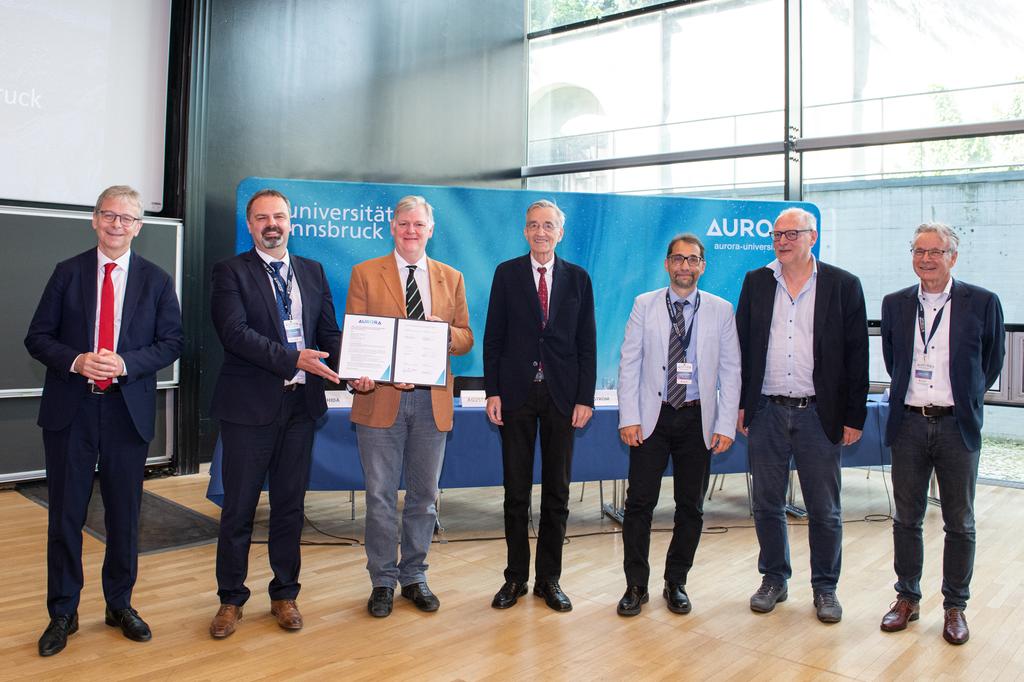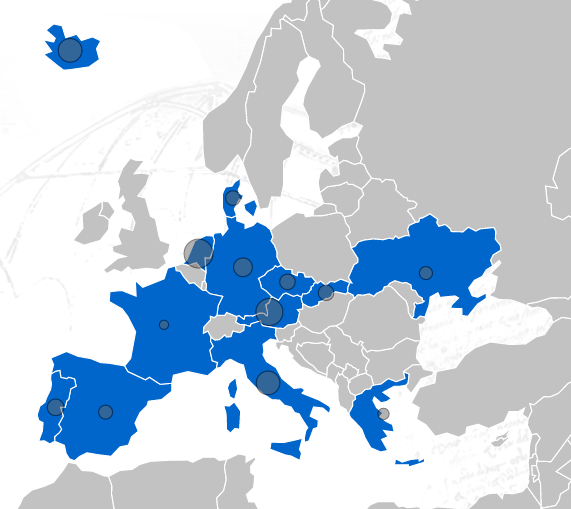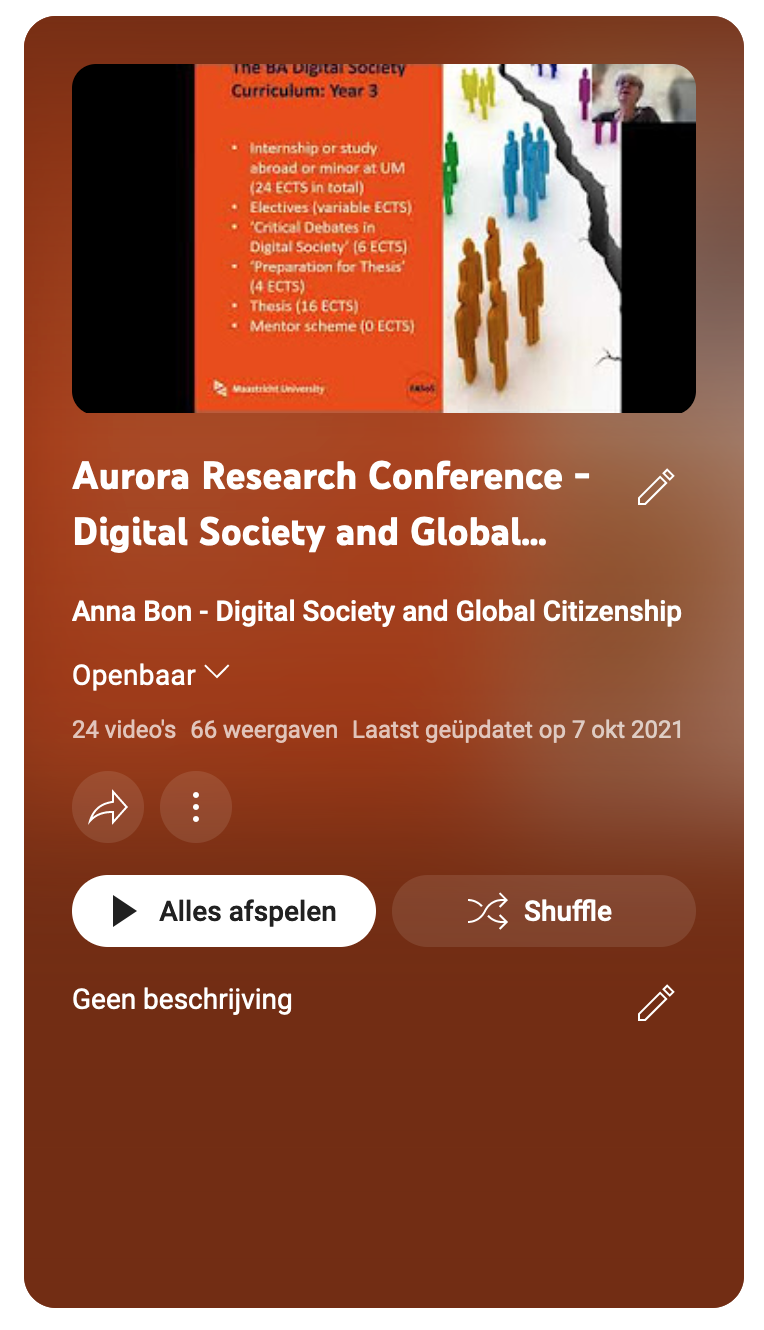Digital Society
& Global
Citizenship
A part of the Aurora Pilot Domains

The Aurora pilot domain Digital Society & Global Citizenship is concerned with Internet, Web and the profound societal transformation that digital technologies create. SDG 9 calls for increased digital connectedness for everyone in the world. The focus of Digital Society & Global Citizenship is how this can be achieved in an inclusive way globally for betterment of the world.
The Digital Age has fundamental, even disruptive effects upon all sectors of society. Thus, study of Digital Society and Global Citizenship provides many learnings for societal impact. Digital technologies have many beneficial applications but also have a dark side that needs to be tackled. Just think of privacy and surveillance in the Digital Age, bias (colour, race, sex, gender, religion) in automated decision making, the Digital Divide and exclusion, ethics of Artificial Intelligence (AI) machines, fake news, hate speech and political manipulation on social media, etc.

Check the Aurora Course catalogue for courses offered to Aurora students in the Digital Society & Global Citizenship.
Aurora Pilot domains
The Aurora Education Vision to equip our graduates with the skills and mind-sets to contribute to addressing societal challenges, has identified 4 “pilot domains”. The pilot domains serve our initiatives to strengthen transversal competences, be more inclusive, enhance international, intercultural and plurilingual student experience, and further also our teachers’ competence to contribute to this vision.
Highlights
Aurora Master Course ICT for Development (ICT4D) in the Field
This international course is open for master students Artificial Intelligence, Computer Science and Information Science as well as Social Sciences and Science and Technology Studies, from different universities: Vrije Universiteit Amsterdam, Universiti Malaysia Sarawak, University for Development Studies Ghana, and Aurora Alliance Universities. This course is an excellent example of Collaborative Online International Learning (COIL).
Here is a short video presenting the ICT4D in the Field course (June 2022).
Expanding and Intensifying International University Cooperation
Increased international university cooperation is, we believe, an important way to increase scale, scope as well as quality level of both academic research and education. A very practical educational mechanism here is to invite international experts for specialized guest lectures in our courses. The recent digital facilities for meeting and conferencing have made this much easier (although many will — rightfully — prefer person-to-person contacts if possible).
Here is one very good example: a guest lecture on AI and Ethics by prof Tamburrini of the University of Naples (UNINA), Italy, in a course coordinated from Amsterdam, The Netherlands (18 June 2021):
Run-up to the new European project EURIDICE on Digital Society & Global Citizenship
In past years we have extensively consulted with Aurora Alliance universities, in part through a road trip across Europe, so as to sound out what the various university interests and ambitions are. This has led to a decision to go for the development of a new international joint master degree programme in the domain of Digital Society and Global Citizenship.
To formalize this ambition, an associated Letter of Intent was signed on behalf of Presidents of Aurora Alliance universities at the Aurora Bi-Annual at the University of Innsbruck, Austria, on 12 May 2022:

Subsequently, a 10 MEUR project proposal called EURIDICE was developed by us and successfully submitted to the European Commission’s Digital Europe programme. The new EURIDICE project will realize an international joint master degree programme on Digital Society, Social Innovation and Global Citizenship. But, further, it will produce so-called self-standing modules for master students (elective courses), modules for teacher training, and modules for life-long learning (LLL) in industry, business, government, and PhD students. In addition, there will be cultural and educational outreach event programs for the general public. Our new EURIDICE project will start with 20+ international partners from academia, research institutes and SMEs on 01 January 2024; it will run for four years and end 31 December 2027.
The EURIDICE project has an extremely strong coverage of Europe as it involves partners from 13 European countries:

(this picture is a screenshot, courtesy from the European Commission Funding and Tenders Portal).
In addition, there are associated partners from the Global South (Malaysia, Ghana) and Ukraine.
Further information on the EURIDICE project is and will become steadily available on its website:
International Student Conferences as a key component of Digital Society higher education
We believe that students are to be actively in the driver seat of their own education. Our courses provide many possibilities for that. Here is an example of a student conference, presenting and discussing the end results of international collaborative student projects in the ICT4D In The Field master course. International student collaboration and student conferences are an integral part of our educational philosophy and approach.
The Challenge of International Hybrid Teaching
Hybrid teaching (onsite + online) for international students is an educational challenge indeed. But we have found out it is doable with a good organisation, if lectures and similar cursory elements are well prepared and provided in intensive blocks of a few hours, such as a Webinar. This proved to be especially effective and successful during the pandemic period. A very successful showcase here is the AI Webinar we organized on “Artificial Intelligence in and for the Global South”, with participation of master students from three continents (Europe, Asia, Africa).
All talk abstracts and lecture recordings are available here.
Aurora Master Course Disruptive Ecosystems
This international course considers the digital economy, and in particular analyses in detail the networked business models of the BigTech platform companies, from Amazon to Google. The research underlying this course has resulted in a textbook “Digital Business Ecosystems” (2023), which explains the networked business modelling methodology, along with numerous practical cases.
Research as the Basis of Advanced Higher Education
Doing research is the foundation for advanced university education. This holds in general, but certainly it holds even stronger for emerging and quickly developing domains such as the Digital Society and the profound societal transformations that come with it. Research is dearly needed because many current aspects and developments of the Digital Society are still poorly understood, let alone what we should do about it in order to keep developments in control for the benefit of humanity. Research is also a basis for quality education, as doing research provides many highly relevant student competencies in the Digital Age. In research and higher education alike, we need to build a critical and reflective attitude and approach: evaluating and weighing evidence, scrutinize arguments, sorting out fake stories and weak arguments, develop positions based on critical argument and evidence. These are key competencies for students in the Digital Age, and they are best developed through research-intensive critical and reflective education.
In line with this, we organized an Aurora Research Conference on Digital Society and Global Citizenship. It took place on 27 August 2021, hybrid (Amsterdam and online); 24 research presentations were given from across Europe.
The recordings, including slides, of all conference speakers are available here.

About us
Aurora is a partnership of like-minded and closely collaborating research‑intensive European universities, who use their academic excellence to drive societal change.

Co-funded by the Erasmus+ Programme of the European Union

This project has received funding from the European Union´s Horizon 2020 research and innovation programme under grant agreement No 101035804
© Aurora European Universities | map by Leaflet, © OpenStreetMap contributors, © CARTO | admin | email template.
